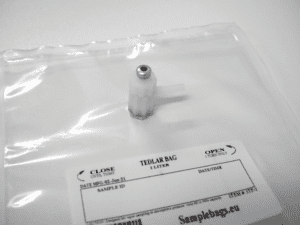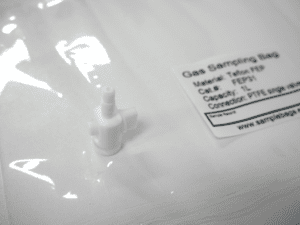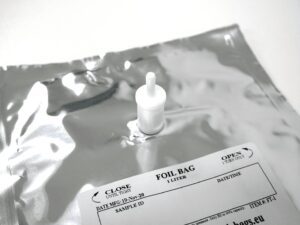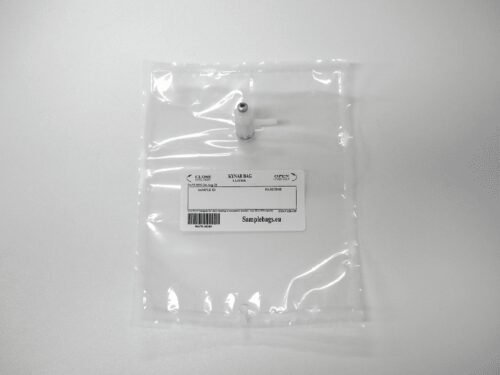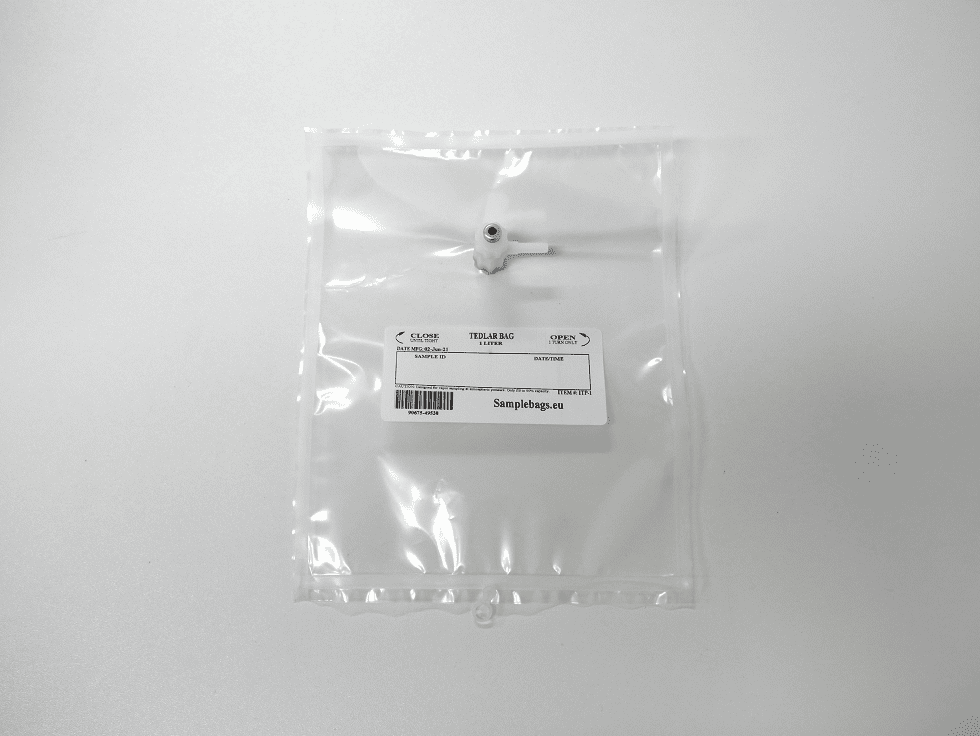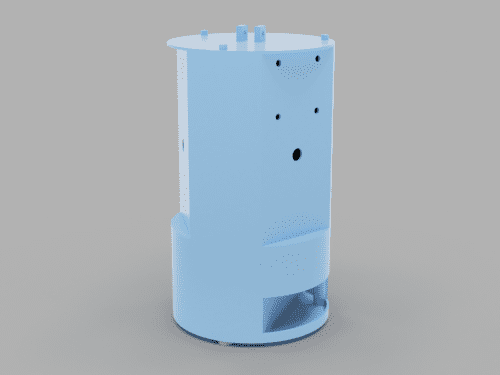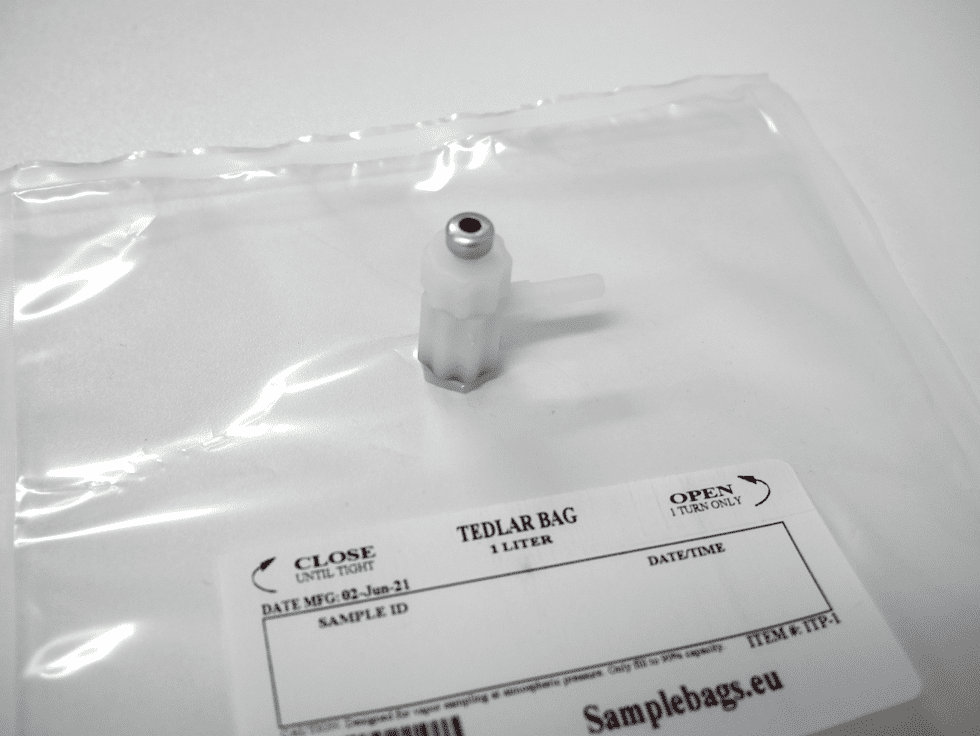
Below is a comparison of three different gas sample bags which we have availabe; the Tedlar bags, FEP (Teflon) bags and Multi Foil Bags. Besides these bags we can also deliver Kynar (PVDF) and Nalophan bags.
If you want to receive a quotation or if you have any questions, please contact us.
| Tedlar bags | FEP Bags | Multi-Layer Foil Bags | |
|---|---|---|---|
| Properties | • Low gas permeation levels for most gases. • High tensile strength. • Withstands temperatures up to 82 °C (180 °F) with polypropylene valves or 202 °C (397 °F) with stainless-steel valves. | • Developed specifically for gas sampling applications. • Chemically inert to most acids, aliphatic and aromatic organic compounds, chlorinated solvents, and alcohols. • Max. operating temp: 82 °C (180 °F). | • Ideal for collecting low molecular weight compounds such as CH₄, H₂S, CO, and CO₂. • Foil layers provide very low permeability and a complete moisture barrier. • Opaqueness protects samples from ultraviolet light. • Max. operating temp: 82 °C (180 °F). |
| Advantages | • Recommended in many EPA testing methods. • Bags resist puncture in the field. • Only bag available with stainless-steel valves. • Unaffected by the chemical components of commonly sampled gases, such as carbon monoxide, sulfur dioxide, hydrogen sulfide, radon, and mercaptans | • Suitable for sampling most VOCs and many sulfur compounds. • Low VOC background. • Does not exhibit background levels of dimethylacetamide (DMAC) or phenol as Tedlar material does. • Lower permeability than Tedlar bags to CO₂, N₂, and CH₄. | • The only bag material that adequately holds H₂S. • Ideal for collecting low molecular weight compounds. • Very low permeability to O₂ and CO₂. • Good VOC stability. |
| Limitations | • Exhibits background levels of dimethylacetamide (DMAC) and phenol. • High permeation rate for CO₂. • Relatively high permeation rate for O₂. | • More permeable to most compounds than Tedlar bags. • Not suitable for sampling ketones and esters in high concentrations (>30%). • Less resistance to UV light than Tedlar material. • Many sulfur compounds should be analyzed within 24 hours. | • Not recommended for collecting low ppm to high ppb VOCs due to background levels from bag materials. • Recommend analyzing within 48 hours after collection for CH₄, H₂S, CO, and CO₂. |
| Composition | polyvinyl fluoride (PVF) polymer resin | Proprietary polyvinylidene fluoride (PVDF) film | 5-layer barrier minimizes gas permeability. – 60 gauge nylon (outer layer) – Metalized aluminum – Polyethylene – 0.0003″ aluminum foil – 0.002″ polyethylene (inner layer) |
| Thickness | 0.002" | 0.003" | 0.004" |
| Tensile Strength | 8000 psi | 6100 psi | 19 lb/in |
| Max. Pressure | ~2 psi (~ 0.14 bar) or ≤80% filled | ~2 psi (~ 0.14 bar) or ≤80% filled | ~2 psi (~ 0.14 bar) or ≤80% filled |
| Max. Operating Temp. | Withstands temperatures up to 82 °C (180 °F) with polypropylene valves or 202 °C (397 °F) with stainless-steel valves | 82 °C (180 °F) | 82 °C (180 °F) |
| Specific Gravity | 1.7 g/mL | 1.78 g/mL | 1.09 g/mL |
| Oxygen Permeability | 50 cc/m²/day | 58 cc/m²/day | 0.0078 cc/m²/day |
| Water Vapor Permeability | 9–57 g/m²/day | 12–15 g/m²/day | 0.0078 g/m²/day |
| Carbon Dioxide Permeability | 172 cc/m²/day | 172 cc/m²/day | 0.0078 cc/m²/day |

